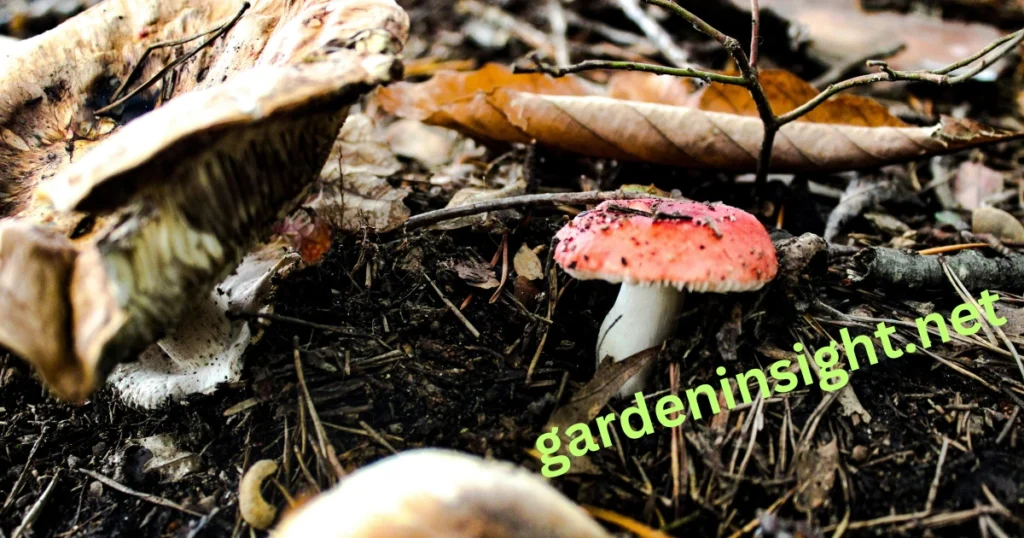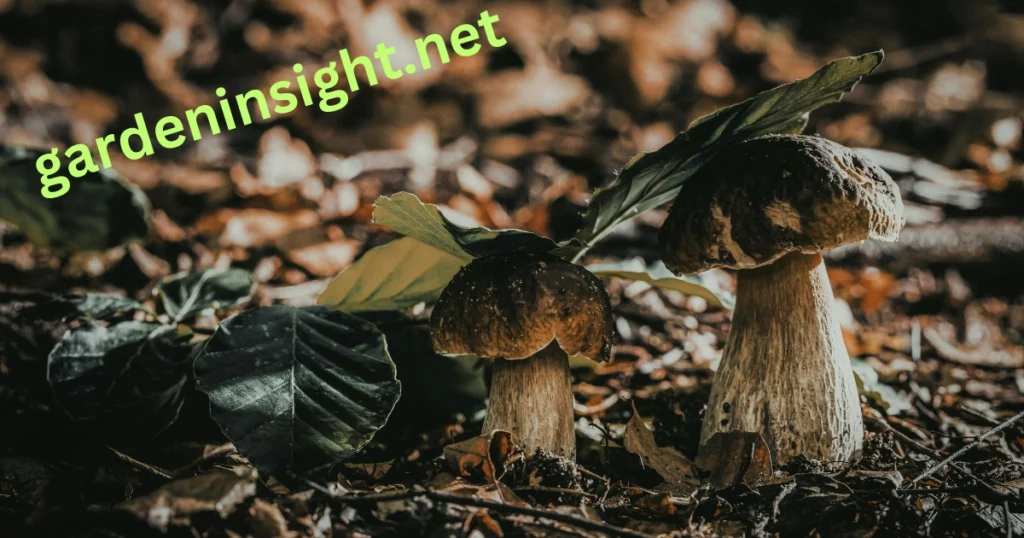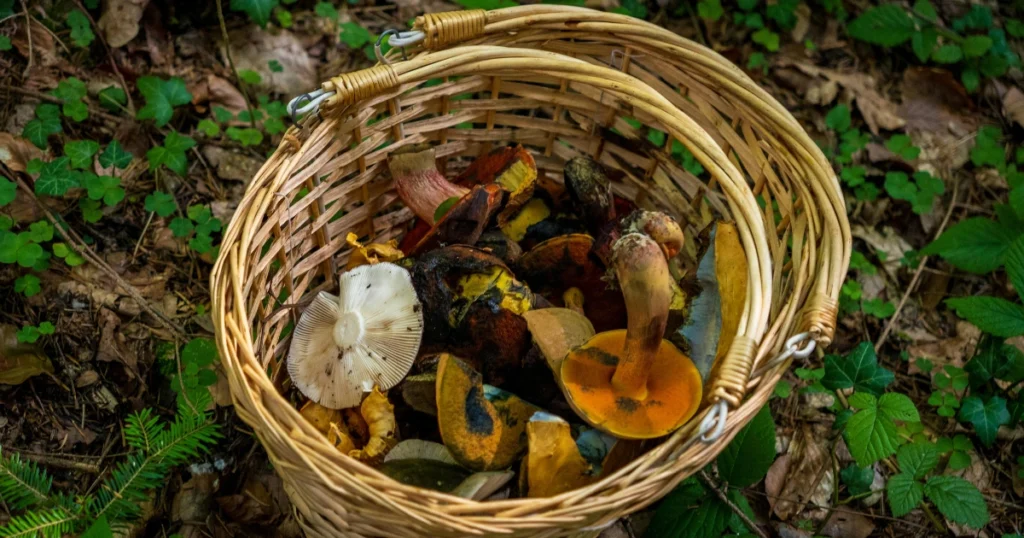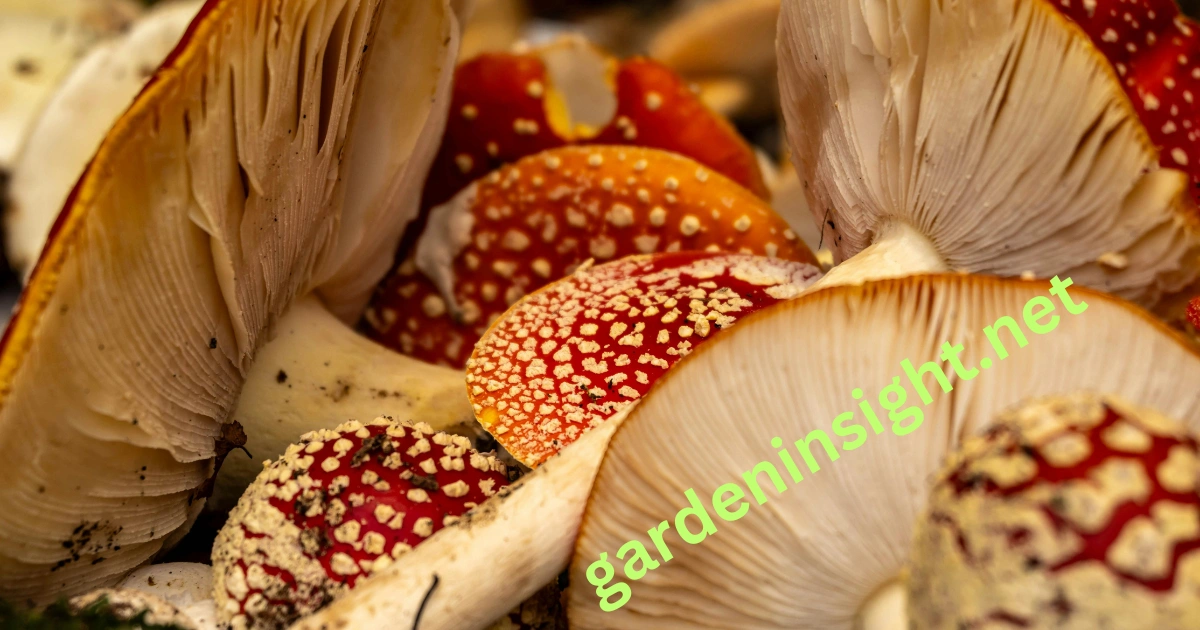Mushroom compost is a popular organic material that many gardeners use to improve soil health. But is mushroom soil good for gardens, and how can it benefit different types of plants?
This guide will explore the advantages and disadvantages of using mushroom soil, as well as practical advice on how to use it in various gardening settings.
We’ll also discuss how to make composted mushroom at home, ensuring that your garden gets the most out of this nutrient-rich material.
Is Mushroom Compost Good for Gardens?

Mushroom compost is a byproduct of mushroom farming, and it is often praised for its ability to enrich soil. It contains essential nutrients like nitrogen, phosphorus, and potassium that can improve soil structure, water retention, and fertility. However, while mushroom soil can be a beneficial addition to your garden, it’s essential to use it correctly to avoid potential downsides.
Is Mushroom Soil Good for Raised Beds
Raised garden beds are popular among gardeners because they allow for better control over soil quality. Using composted mushroom in raised beds can be an excellent way to boost soil fertility and structure.
How to Use Composted mushroom in Raised Beds
- Mix with Existing Soil: Combine composted mushroom with the soil in your raised bed to improve its nutrient content.
- Add Organic Matter: Pair composed mushroom with other organic materials like composted leaves or grass clippings for better results.
| Benefit of Compost Mushroom | Effect on Raised Garden Beds |
|---|---|
| Improves soil aeration | Easier root growth |
| Adds nutrients | Healthier plants |
| Retains moisture | Less frequent watering |
Composted Mushroom for Vegetable Garden

Composted mushroom can be particularly beneficial for vegetable gardens, as it provides the nutrients necessary for strong plant growth. However, certain plants may not respond well to it due to its salt content.
Is mushroom compost good for tomatoes?
Yes, mushroom compost can be a beneficial soil amendment for tomatoes. It’s rich in organic matter, which improves soil structure, drainage, and moisture retention – all crucial for healthy tomato growth.
This compost also contains essential nutrients like phosphorus and potassium, promoting strong root development and fruit production.
However, it’s important to use mushroom compost carefully. Due to its high pH and salt content, it’s best to mix it with other soil amendments like peat moss or coco coir to balance its properties. This creates an ideal growing environment for your tomato plants to thrive and produce a bountiful harvest.
Best Vegetables for Composted Mushroom
- Tomatoes: Thrive with the extra nutrients provided by mushroom soil.
- Peppers: Enjoy the improved soil structure and moisture retention.
- Lettuce: Grows well in nutrient-rich, well-draining soil.
Plants to Avoid
Some vegetables, such as carrots and onions, are sensitive to the salt content in composted mushroom. It’s best to mix composted soil with other organic materials to dilute any potential harm.
| Vegetables That Benefit | Vegetables to Avoid |
|---|---|
| Tomatoes, Peppers, Lettuce | Carrots, Onions |
How to Make Composted Mushroom at Home for Garden

Creating composted mushroom at home is an eco-friendly and cost-effective way to nourish your garden. The process is relatively simple and can be done using readily available materials.
Steps to Make Composted Mushroom
- Gather Ingredients: You’ll need straw, manure, and gypsum, which are the main components of mushroom soil.
- Mix the Ingredients: Combine the straw, manure, and gypsum in a large pile.
- Allow to Decompose: Let the pile sit and decompose for 2-3 weeks, turning it regularly to ensure even breakdown.
- Use in the Garden: Once fully decomposed, the compost is ready to be added to your garden soil.
Why Make Composted Mushroom at Home?
- Cost-Effective: Homemade compost is cheaper than store-bought options.
- Environmentally Friendly: Reduces waste by reusing organic materials.
- Customizable: You can control the ingredients to ensure the best quality compost for your garden.
| Materials for Composted Mushroom | Role in Composting Process |
|---|---|
| Straw | Provides carbon |
| Manure | Adds nitrogen |
| Gypsum | Balances pH and texture |
Is Composted Mushroom Good for Flowering Garden?
Flowering plants can benefit from the nutrient boost provided by mushroom compost. However, it’s essential to use it in moderation to avoid overwhelming delicate plants with too many nutrients or salts.
Best Practices for Using Mushroom Compost with Flowers
- Dilute the Compost: Mix mushroom compost with regular garden soil to prevent nutrient overload.
- Apply to the Base of Plants: Avoid spreading compost directly onto flower petals or leaves, as this can cause burning.
- Monitor Plant Growth: Keep an eye on your plants for any signs of stress, such as yellowing leaves or stunted growth, which may indicate over-fertilization.
Flowers That Benefit from Mushroom Compost
- Roses: Thrive in nutrient-rich soil with improved water retention.
- Dahlias: Benefit from the extra organic matter and nutrients.
- Sunflowers: Grow tall and strong with the help of mushroom compost.
| Flowers That Benefit | How Mushroom Compost Helps |
|---|---|
| Roses, Dahlias, Sunflowers | Nutrient boost, Water retention |
Mushroom Compost Benefits
Mushroom compost offers a wealth of benefits for gardeners and farmers alike. This nutrient-rich byproduct of mushroom cultivation is packed with organic matter, enhancing soil structure for improved aeration and water retention.
It provides essential nutrients like phosphorus and potassium, crucial for robust root development and abundant fruit production.Moreover, mushroom compost fosters a thriving microbial ecosystem in the soil, boosting plant health and disease resistance.
While it’s important to note its slightly alkaline pH and potential salt content, amending it with materials like peat moss or coco coir creates a balanced growing medium for optimal plant growth. Incorporating mushroom compost into your gardening practices can lead to healthier plants, increased yields, and a more sustainable approach to cultivation.
- Improves Soil Structure: Mushroom soil helps to break up compacted soil, making it easier for roots to grow.
- Boosts Nutrient Levels: It adds vital nutrients to the soil, helping plants grow strong and healthy.
- Enhances Water Retention: This compost increases the soil’s ability to retain water, reducing the need for frequent watering.
Downsides to Consider
- High Salt Content: Composted mushroom can sometimes have a high salt content, which may harm certain sensitive plants.
- Weed Growth: If not properly treated, it can introduce weeds into your garden.
Conclusion
Mushroom compost can be a highly beneficial addition to your garden, offering a range of advantages from improving soil structure to boosting nutrient levels.
Whether you’re working with raised garden beds, a vegetable garden, or flowering plants, mushroom compost can enhance your garden’s overall health. However, it’s essential to use it wisely, especially with salt-sensitive plants, and to consider making your own at home for the best results. By incorporating mushroom compost into your gardening routine, you’ll be on your way to healthier plants and a more sustainable garden.
FAQs
A few most inquired questions are as follow:
Is Composted Mushroom Safe for All Plants?
Mushroom compost is generally safe for most plants, but its high salt content can be harmful to salt-sensitive plants like carrots and strawberries. It’s best to mix it with other composts for more sensitive plants.
How Often Should I Add Mushroom Compost to My Garden?
It’s recommended to apply composted mushroom once a year, either in early spring or late fall, to provide the soil with a steady supply of nutrients throughout the growing season.
Can I Use Mushroom Compost in Potted Plants?
Yes, you can use mushroom compost in potted plants, but it’s best to mix it with other potting soil to prevent the high salt content from damaging delicate plants.
What Is the Best Way to Store Mushroom Compost?
Mushroom compost should be stored in a cool, dry place and kept in an airtight container to prevent it from drying out or becoming contaminated with pests.
Can Mushroom Compost Help with Soil Drainage?
Yes, mushroom compost can improve soil drainage by breaking up compacted soil and promoting better air and water movement through the soil.
